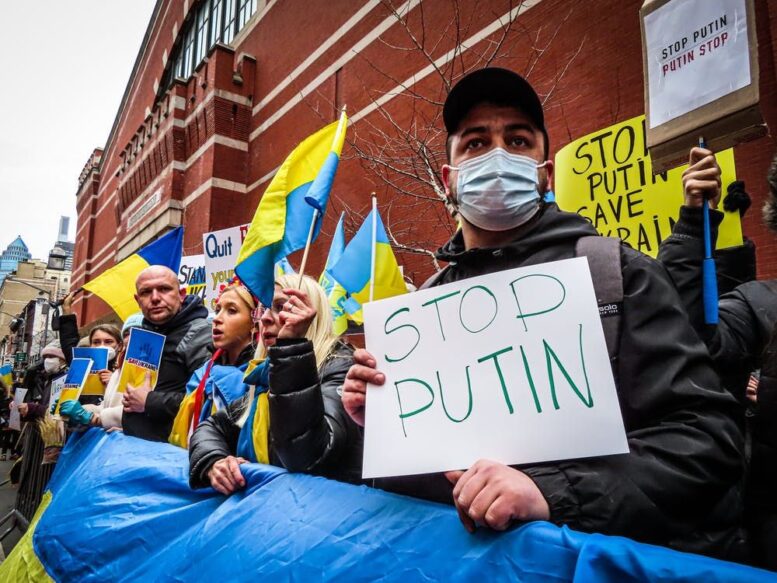There have been a number of comments in the domestic discourse on the Ukraine crisis – both on social media and mainstream media – but unfortunately, a discussion of the legal aspect seems to be wanting. An understanding of these issues cannot be sufficiently had without taking into account the pertinent rules of international law.
For weeks the United States warned of a Russian invasion in Ukraine. Many thought and hoped that such invasion would not be a reality. However, President Vladimir Putin’s announcement of his unilateral recognition of the Donetsk People’s Republic and the Luhansk People’s Republic as sovereign states proved to be a prelude to an impending attack. Such a move was indubitably Russia’s laying the legal premises for an invasion. Not long after, President Putin announced that he would launch special military operations in Ukraine.
Recently, the world has again seen how the United Nations Security Council (UNSC) could be crippled when, as a political body, it failed to adopt a resolution to address the crisis in Ukraine. Really and truly, this outcome is neither new nor unexpected. As a permanent member of the UNSC possessed with the veto power, naturally the Russian Federation would reject a resolution against it, and it did. Be that as it may, it would not have been difficult for the UNSC to determine that the situation in Ukraine is not simply a threat to the peace but a breach thereof and even an act of aggression for which even forcible measures may be taken on its authorization.
It is in view of the paralysis of the UNSC, which has been tasked to maintain or restore international peace and security, that it becomes necessary and important to understand self-defense in international law as enshrined in the UN Charter. Whilst as a rule, inter-state use of force is prohibited, one important exception hereto is the inherent right of self-defense pursuant to which a state may launch an attack (counter attack) against another state. Otherwise stated, provided that the employment of force against another state is consistent with international law, such use of force is legally permissible. For states whose military capability is in a challenged state, understanding self-defense exercised collectively with another state or other states would be helpful. For this purpose, a military alliance indeed assumes importance.
A comment has been made recently on social media to the effect that there is supposedly no legal basis for other states to militarily assist Ukraine. As it appears, the view merely considered the failure of the UNSC to act in these situations, without realizing a state’s “inherent right of self-defense.”
When President Putin announced that ‘special military operations’ would be launched, his statement was in fact replete with legal arguments. Indeed, rules of international law cannot be disregarded even in, or in fact especially in, situations of ‘war.’ If we fail to realize that there are rules governing these circumstances, this deficiency is of course a problem. It would be equally problematic of course if we fail to understand what these rules are. How can we play the game, if we do not know the rules?
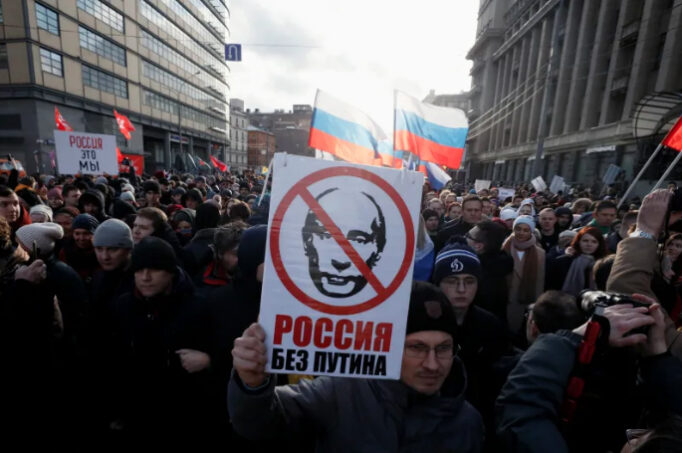
Protest placard in Moscow: Russia without Putin. Photo Credit: Foreignaffairs.com
In his statement, President Putin cited as one of the bases for his actions the need to protect Russian nationals abroad. Indeed, provided that empirical evidence – facts – supports it, this is a valid legal argument in relation to the exercise of self-defense given that an attack against one’s people is an armed attack against its state.
This particular point should be carefully considered by the Philippines especially in relation to the South China Sea disputes. Some comments made on social media posit that the Mutual Defense Treaty of 1951 between the Philippines and the U.S. is not applicable in the ‘West Philippine Sea,’ understood as pertaining to the Philippines’ Exclusive Economic Zone (EEZ). The reason given was that this area is not part of Philippine territory. Under international law, the EEZ is indeed not part of the territory of a state. However, regrettably, what these comments fail to take into account is the development of international law particularly on the deterritorialization of the concept of armed attack.
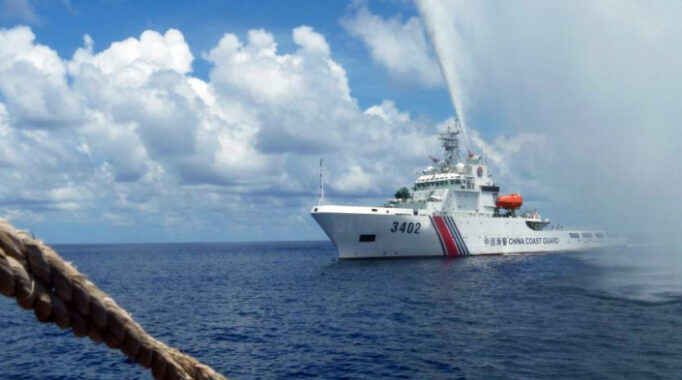
The Chinese Coast Guard confronted Filipino fishermen near Scarborough Shoal in the South China Sea in 2020. Photo Credit: Renato Etak Associated Press | Asharkq Al-Aswat.com
To be sure, the concept of ‘armed attack’ is not limited to an invasion. As it has been acknowledged in scholarly works and more importantly in state practice, an attack against the nationals of a state can be deemed an attack against such state given that its people are a constitutive element of such state. Therefore, it would be a flawed approach to accept that an attack on an uninhabited island would be an armed attack because it is an attack on a piece of territory, but an attack carried out beyond a state’s territory against its nationals such as fishermen resulting in loss of lives cannot be deemed an armed attack against its state.
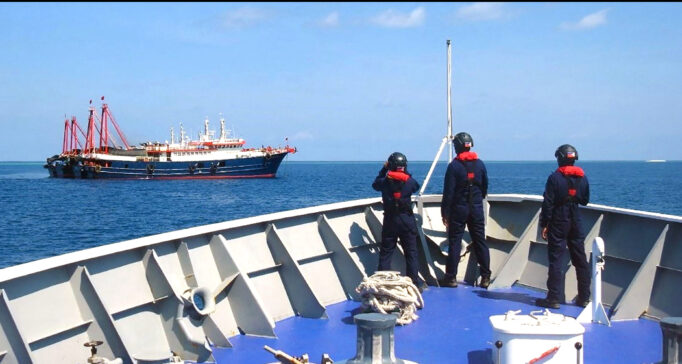
PCG aboard BRP Cabra monitor Chinese vessels anchored at Sabina Shoal claimed by Beijing and Manila. Photo Credit: AFP.
Really and truly, contrary to what some opine, the present crisis in Ukraine demonstrates the importance and relevance of international law. To be sure, as in all other systems, it is by no means perfect, a reality which the International Court of Justice (ICJ) impliedly recognized as early as in 1949 in the Corfu Channel case when it alluded to ‘the present defects in international organization.’ It would be unfair and inaccurate to cite breaches of international law as reasons to argue its irrelevance. Crimes happen every so often, but to argue that this reality renders domestic law penalizing crimes inutile would be quite cavalier and irresponsible.
To be sure, when a state attempts to justify its actions, despite their being unlawful, this effort actually strengthens the rule violated. As the ICJ explained in 1986 in its Judgment in the Case concerning Military and Paramilitary Activities in and against Nicaragua – ‘If a State acts in a way prima facie incompatible with a recognized rule, but defends its conduct by appealing to exceptions or justifications contained within the rule itself, then whether or not the State’s conduct is in fact justifiable on that basis, the significance of that attitude is to confirm rather than to weaken the rule.’
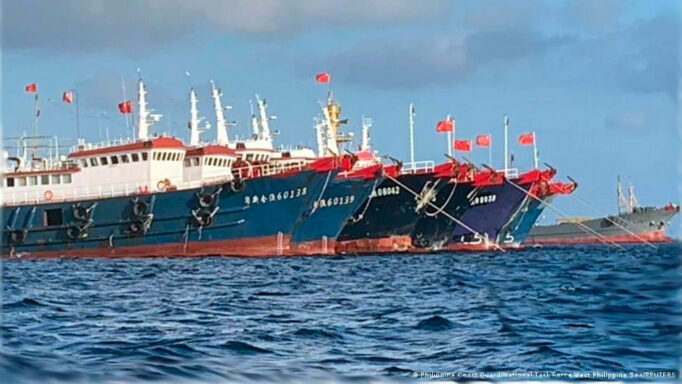
The US has warned China that it will defend the Philippines’ armed forces from attack in the South China Sea as part of a 70-year-old mutual defense treaty. Photo Credit: PCG.
Enforcement of international law is indeed a challenge given the sovereignty of states composing the international community. In view of the limitations of the collective security system designed by the UN Charter, it is important to understand that international law nonetheless has preserved a state’s inherent right of self-defense.
About the Author:
Julius A. Yano received his training in international maritime law in Europe and subsequently taught international maritime security law at the IMO-International Maritime Law Institute in Malta. He is a reserve officer in the Armed Forces of the Philippines and spent years with the Intelligence Service Armed Forces of the Philippines (ISAFP) for his active duty training. He is likewise a member of the Philippine Coast Guard Auxiliary.
Reprinted with permission from the author.
